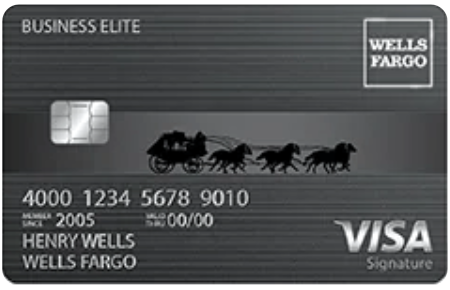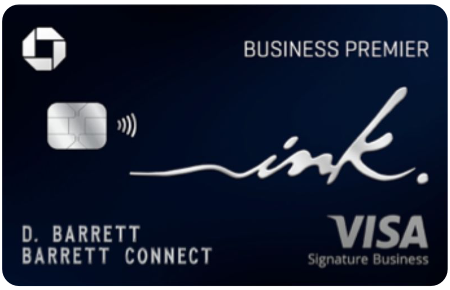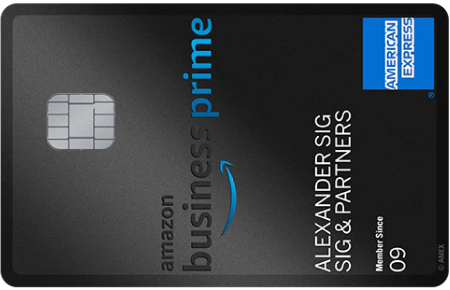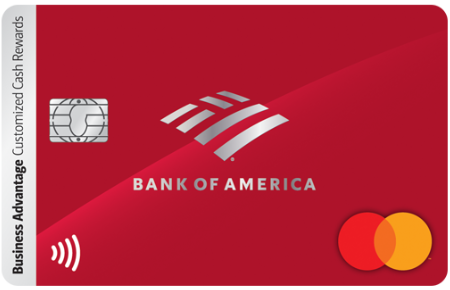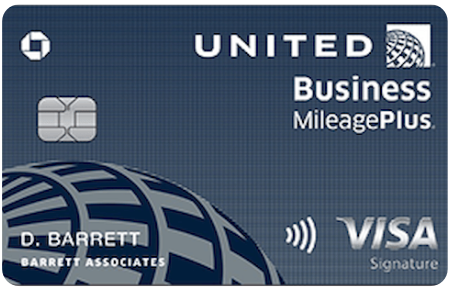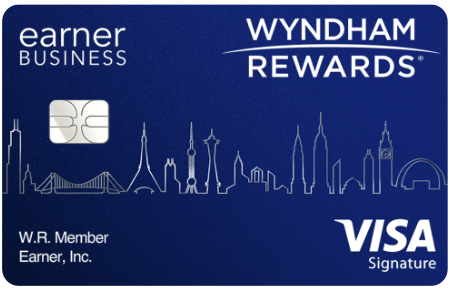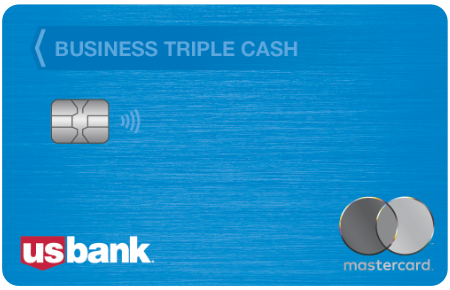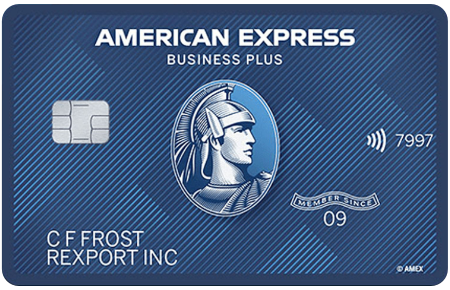8 Best Business Credit Cards For Startups
Having a credit card for your business gives you access to perks and features that may not be available with a debit card or even a personal credit card. For this reason, thousands of startups and small business owners turn to business cards to help them make everyday purchases for their commercial enterprises. However, there are plenty of other reasons to consider applying for a business credit card.
Our team of experts gathered the ultimate list of credit cards that suit a variety of people, regardless of your credit score and history. If you are ready to find the most beneficial credit card for your situation, keep reading this article to learn everything you need to know.
Top 8 Best Small Business Credit Cards
So, is a business credit card the right choice for your startup? Are you considering one business card or multiple cards for your employees? Most importantly, what are some of the best business credit cards on the market right now? In this guide, we will answer all these questions and more, but first, let’s examine what people really mean when they say “business card” or “small business credit card.”
8 Best Credit Cards For Startups
- Blue Business Plus from American Express
- Ink Business Premier
- Wells Fargo Business Elite Signature Card
- Amazon Business Prime Card
- U.S. Bank Business Triple Cash Rewards World Elite Mastercard
- Bank of America Business Advantage Customized Cash Rewards Mastercard
- United Business Card
- Wyndham Rewards Earner Business Card
What Are Small Business Credit Cards?
A small business credit card provides startups or small business owners with revolving credit up to a set limit. This means that, by and large, credit cards for businesses function much like any other type of unsecured credit card.
For example, let’s say you apply for a small business credit card and get approved. The bank or lending institution will send your card in the mail, and you can start using it as soon as it arrives. You will need to make a minimum payment each month, and the lender will charge you interest on any balance remaining on your card. Therefore, when it comes to their basic functions, business and personal credit cards work the same.
That said, personal and business cards are not exactly the same. If they were, there would be no reason for the distinction. In truth, business cards often have different application requirements that can vary from one banking institution to another. You may need proof of business revenue to qualify for certain cards. In any case, the primary difference between personal and business cards is their credit limits and rewards. Generally, business cards come with a higher limit than personal cards.
For instance, let’s say that you apply for two cards at the same time — one personal and the other business. You have a credit score of 650 and an average monthly income of $5,000 before taxes. Your personal card may come with a limit of around $2,000, while a credit card for your business could come with a starting credit amount of two or three times higher.
Small Business Credit Cards
It is important to note that the example above uses hypothetical figures. The actual credit limits you can acquire will vary based on the lender, your credit history, and various other factors. This is true of both personal and business cards. Nonetheless, it is typically easier for businesses to qualify for higher limits, even if your business is relatively new or small.
The other way that business cards differentiate themselves from personal cards is the rewards. Business cards typically offer rewards programs that are beneficial to small business owners. These rewards might include travel rewards points, cash back on eligible purchases, discounts on office supplies, or no foreign transaction fees.
While you can still get some or all of these same rewards with a personal card, personal cards are generally designed to appeal to larger segments of the population. Rather than only focusing on business-related benefits, you can get personal cards with much more diverse rewards programs.
The last difference between business and personal cards may seem minor but can actually be relatively important. With a credit card for a business, you will almost always see the name of the business on the card. The card will also likely say “business credit card” somewhere on the front or back. However, this does not mean you won’t see your name on the card. In fact, most banks and lenders require the applicant’s name to appear alongside the business’s name on the card.
Who Is Eligible For A Business Credit Card?
Fortunately, if you’re in the market to get a business credit card, very few limitations stand in your way. As long as you have a credit history and can attest that you have a business, you can generally qualify for a business card. But remember: each lender has its own application requirements. Additionally, some business cards may have more stringent requirements than others.
In any case, most “starter” business cards only require a business name when you apply. This ensures that freelancers, contract workers, entrepreneurs, startups, and self-employed individuals can all gain access to business cards. If you’re worried that you won’t qualify, try to apply for a card through a bank with which you already have accounts. For example, if you have a debit account, you may have better odds of qualifying for a credit card for your business (and better terms) through the same bank or credit union.
How Do Business Credit Cards Work?
As previously mentioned, business cards generally work the same as personal cards. However, you may find some variations in the kinds of tools offered by the credit card provider. Some banks offer specific accounting products to businesses. You may also get access to helpful budgeting or tax software.
Additionally, many business cards are designed so that you can distribute cards to managers or other senior members of your business organization. This way, anyone with authority to make business purchases can do so without having to request it directly from the business owner. Naturally, this only applies if your business or startup has multiple employees with purchase authorization.
This also brings up the issue of control. If you have multiple authorized users on your account, you will often be able to control how and when those cards are used. You can even block specific cards from being used as needed. This way, you can prevent credit card fraud within your business and ensure that the account is only used for necessary business expenses, regardless of who swipes the card.
How To Compare
Business Credit Cards
Now that you know more about business cards and how they work, it’s time to think about how you can compare different business cards. If you already have a personal card or have shopped for credit cards in the past, you’ll likely be familiar with many of the metrics used for business cards. Below are some of the most important factors to consider when choosing between different business cards or providers:
Credit Limit
The limit on any credit card represents the maximum amount you can spend with that card. Sometimes, credit card companies and providers will do regular checks to see if you qualify for higher limits. Other times, you may need to request credit increases on your own.
Either way, if you know that you will need to make large purchases or spend a certain amount on business expenses each month, you’ll want to ensure that your business card can cover the costs. Remember that your starting credit amount largely depends on your income (business and personal) and your individual credit history.
If you have a credit history for your business, this will also be a significant factor. However, many small businesses and startups still need to establish a credit history or need to be made aware of where their business score stands. If you have previously taken out business loans under the current business name, there is a good chance that you have a business score. If not, lenders and credit card companies will rely more on your personal finances to determine your credit amount.
Rewards
Each business and business owner has specific ways of spending money. For instance, if your business has no travel expenses, you have little need to get a travel rewards credit card. Instead, you may prefer a business card with cash-back deals on eligible purchases or discounts on business software. Regardless of which bonus rewards you prefer, you should thoroughly evaluate your business spending and how you could benefit from different kinds of rewards. This way, you can skip over cards that don’t offer the types of rewards you want or need and instead focus on the ones that do.
Interest Rate
Having a credit card can give your business instant access to credit, making it much easier to stay up and running. That said, if you don’t practice fiscal responsibility with your card, you could easily see yourself (and your business) burdened by an endless cycle of debt. This is particularly true if your card comes with a high annual percentage rate (APR).
On average, business cards have lower interest rates than personal cards. These lower rates are often available because businesses can report both business and personal income when applying for a new card. Nonetheless, you should shop around for a credit card company that offers lower interest rates. Even getting a card with 18% APR instead of 20% APR could save you thousands of dollars every year.
Fees
Many (though not all) business cards charge an annual fee to keep the account open. The annual fee amount can vary between lenders and, in some cases, can be waived based on your spending habits. In any case, you should always know exactly how much you need to pay in fees to maintain your business card.
An annual fee is just one of many fees to consider. Some cards charge high penalty fees for going over your limit or even failing to use your card enough. For this reason, you should always read the fine print to determine how much you’ll need to pay for the annual fee, overage fees, penalty fees, or any other fees charged by the card provider.
Security
These days, most credit card companies have excellent security features to ensure that your account remains safe from theft or fraud. Major banks often employ standard fraud detection services and activity monitoring to watch for suspicious activity. These services can be extremely beneficial if you fear that your business card has been stolen or used for fraud.
It goes without saying that the security measures offered by different credit card companies, banks, and lenders are never exactly the same. Some providers offer more features to ensure that your cards remain safe. So, if security is a top concern for you and your business, investigate what security features are available before choosing a business card.
Business Credit Card Benefits
Though you may already know that you want a credit card for your startup, it’s still a good idea to know the potential benefits and drawbacks of acquiring a business card.
Pros of Business Credit Cards
Cons of Business Credit Cards
How To Apply For a Business Credit Card
Once you choose a credit card that fits your needs, you’ll need to know what to expect during the application process. The information and documentation you must provide may differ based on the size and structure of your business, as well as the requirements set out by the credit card provider. That said, the requirements will typically be divided into two categories: personal information and business information.
Personal Information
Even if you’ve been in business for years and have established business credit, you will need to provide some of your own information and documents as a “personal guarantee.” This personal guarantee assures the lender that you can personally pay for debts if your business cannot. Here is some of the essential personal info that you’ll need to provide:
- Full name
- Date of birth
- Social Security number
- Home address
- Phone number
- Email address
- Annual income
- Monthly housing payment (rent or mortgage)
Business Information
Again, the amount of business information needed varies from one lender to another. You can often get by with less information if you apply for a business card through a bank with which you already have accounts. It can also help to visit a local branch of your bank in person, as you can plead your case to an individual rather than simply inputting information in an online form. In any case, here is some of the business info that you may need to provide when you apply:
- Business name
- Legal structure (LLC, corporation, etc.)
- Industry
- Business address
- Phone number
- Annual revenue
- Number of employees
- Years in business
- Estimated monthly spending
- EIN (if applicable)
The 8 Best Business Credit Cards For Startups
Blue Business Plus from American Express
The Blue Business Plus from American Express is a great card for startups that need substantial buying power. This American Express Blue Business card comes with no annual fee and Expanded Buying Power, meaning you can go over your limit without incurring any penalty fees. Plus, the double rewards points on eligible purchases make this card extremely beneficial for startups with recurring expenses.
- Annual Fee: $0
- Sign Up Bonus: 0% intro APR for purchases in the first 12 months from account opening
- APR: 16.99% – 24.99% (Variable)
- Recommended Credit Score: 680 and above
- Rewards: 2x rewards points on eligible purchases for your business
- Additional Benefits: Flexible credit limit
- Best For: Startups with high spending
Pros
Cons
Ink Business Premier
The Ink Business Premier card is one of the more unique business cash rewards cards on the market. Not only can you get $1,000 by spending at least $10,000 on your new card within the first 3 months, but you also get 2.5% cash back on large purchases and 2% cash back on everyday business purchases. Moreover, although there is an annual fee, this card is ideal for business owners who don’t like to carry a balance, as you can access higher limits and additional rewards by paying your Ink Business Premier balance every month.
- Annual Fee: $195
- Sign Up Bonus: $1,000 cash back if you spend $10,000 within the first 3 months
- APR: 17.24% – 25.24% (Variable)
- Recommended Credit Score: 700 and above
- Rewards: 2.5% on large purchases ($5,000 or more) and 2% cash back on all other eligible purchases
- Additional Benefits: Higher credit amount for card owners who pay their balance in full every month
- Best For: Startups that regularly make large purchases
Pros
Cons
Wells Fargo Business Elite Signature Card
The Wells Fargo Business Elite Signature Card is specifically designed for startups and businesses with high revenue. While this may prevent some startups from qualifying, it is well worth the effort to apply. This card offers incredibly low interest rates and ample cash back rewards on eligible purchases, and no annual fee the first year. Plus, you can request up to 200 cards for your employees at no extra cost.
- Annual Fee: $125 (waived for the first year)
- Sign Up Bonus: $1,000 cash back if you spend $25,000 within the first 3 months
- APR: 10.24% (Variable)
- Recommended Credit Score: 700 and above
- Rewards: 1.5% cash back on every purchase or 1 reward point per dollar spent
- Additional Benefits: No foreign transaction fees, up to 200 free employee cards available
- Best For: Startups with high revenue
Pros
Cons
Amazon Business Prime Card
The Amazon Business Prime Card is one of the best business cards to get if your startup already utilizes Amazon for making purchases or managing your business. Though you will need a good credit history to qualify, the Amazon Business Prime Card is a relatively low-cost and low-maintenance card for startups and small businesses. With no annual fee, you can earn robust cash back rewards on all purchases, particularly purchase related to business expenses.
- Annual Fee: $0
- Sign Up Bonus: None
- APR: 17.99% – 25.99% (Variable)
- Recommended Credit Score: 700 and above
- Rewards: 5% cash back on select business purchases, 2% on common everyday purchases, and 1% on other eligible purchases
- Additional Benefits: No fees on foreign transactions, Amazon reward points never expire
- Best For: Startups that make regular Amazon purchases
Pros
Cons
U.S. Bank Business Triple Cash Rewards World Elite Mastercard
The U.S. Bank Business Triple Cash Rewards World Elite Mastercard has a lot to offer startups of all shapes and sizes. The card starts with huge benefits, including up to $500 cash back and no APR on purchases in the first 15 months. On top of the great introductory rewards, you also have no annual fee and get 3% cash back on select purchases and a $100 credit for business software every year. In short, this is one of the best all-around business cards for startups.
- Annual Fee: $0
- Sign Up Bonus: $500 cash back if you spend $4,500 in the first 150 days, 0% intro APR for purchases in the first 15 months of account opening
- APR: 17.74% – 26.74% (Variable)
- Recommended Credit Score: 700 and above
- Rewards: 3% cash back on select business and everyday purchases
- Additional Benefits: $100 statement credit for business software, 5% cash back on prepaid travel expenses
- Best For: Startups that need 0% intro APR
Pros
Cons
Bank of America Business Advantage Customized Cash Rewards Mastercard
The Bank of America Business Advantage Customized Cash Rewards Mastercard credit card offers multiple ways to save on expenses and earn back cash rewards, all with no annual fee. You can qualify for 0% intro APR on purchases in the first 9 months from account opening, even if your credit score is not good or excellent. Plus, if you already have a checking or savings account with Bank of America, you can earn even more cash rewards on every purchase with the Bank of America Business Advantage card.
- Annual Fee: $0
- Sign Up Bonus: 0% intro APR for purchases in the first 9 months from account opening
- APR: 15.24% to 25.24% (Variable)
- Recommended Credit Score: 650 and above
- Rewards: Up to 5.75% cash back on select eligible purchases, as well as 1.75% cash back on all purchases
- Additional Benefits: Multiple ways to redeem your rewards
- Best For: Startups that already have accounts with Bank of America
Pros
Cons
United Business Card
If you’re looking for a business travel rewards card, the United Business Card is one of the best options out there. Naturally, you’ll get the most benefits from this card if you travel with United. However, you can still redeem miles on any travel-related expenses, albeit at a lower rate.
- Annual Fee: $99 (waived the first year)
- Sign Up Bonus: 75,000 bonus miles after eligible purchases
- APR: 19.49% – 26.49% (Variable)
- Recommended Credit Score: 700 and above
- Rewards: Earn miles on every purchase and 2x miles on select purchases
- Additional Benefits: Travel benefits with United Airlines, including priority boarding and one free checked bag
- Best For: Startups that have regular travel expenses
Pros
Cons
Wyndham Rewards Earner Business Card
Wyndham is one of the largest hotel franchises in the world. So, if you or your business partners frequently travel for business, there is a good chance you’ll stay at a hotel owned by Wyndham. This is where the Wyndham Rewards Earner Business Card really shines. You can earn thousands of points when you stay at a Wyndham hotel or spend on eligible purchases.
- Annual Fee: $95
- Sign Up Bonus: Earn 45,000 bonus points if you spend at least $2,000 on purchases in the first 90 days
- APR: 18.99% – 22.99% (Variable)
- Recommended Credit Score: 620 and above
- Rewards: Earn 8x miles on Wyndham hotel purchases, 5x points on qualifying business expenses, and 1x points on everything else
- Additional Benefits: Automatically receive Diamond member status at Wyndham hotels and resorts
- Best For: Startups that have regular travel expenses
Pros
Cons
Frequently Asked Questions About The Best Business Credit Cards
Yes, you can get a corporate credit card by providing your business EIN. If you take this route, you may not have to provide your personal Social Security number, as the card provider will evaluate your eligibility based on your business credit score and history. This could also make it easier to qualify for better cards if your personal credit history is less than ideal at the time you apply.
Yes, you can apply for a business credit card without a business, though it may depend on the card and card provider. Thousands of freelancers and contract workers get credit cards because they are self-employed. So, even though they may not have an LLC or another official business structure, they still qualify as a “business.” That said, some business cards require you to show evidence of a business and even minimum earning requirements. Alternatively, most business cards simply require you to provide a business name (it could even be your name) and your personal credit information.
Yes, if you are the owner of an LLC or an authorized officer of an LLC, you can apply for a business credit card through the business. However, keep in mind that applying through your LLC will not rid you of personal liability. If your name is on the application form, you will be personally liable to pay back the debts. This does not apply if you opt for a corporate card, though the requirements for corporate cards can be far more stringent.
Business cards are typically one of the most expensive ways to access credit as a startup or small business. You could potentially save thousands on interest by opting for a small business loan instead. Additionally, most credit cards for businesses come with higher fees than personal credit cards, particularly when it comes to an annual fee. Business credit cards may also be harder to manage, as it is easy for startups and small business owners to mix their personal and business finances.
To get a high-limit credit card for your business, you will need to have strong financial credentials. More specifically, you’ll need to have a good or excellent credit score (700 or above), evidence of consistent income, and relatively little debt. If your personal credit score is subpar, you may still be able to qualify if your business has good credit. However, your business may not have a credit history unless you have an EIN and have taken out business loans in the past.
No, it is not any easier to qualify for a business credit card. Credit cards for businesses typically have the same requirements as consumer credit cards. In some cases, you may even need to provide additional proof of business income or show stronger credentials to qualify for high-limit business credit cards. So, if you’re a freelancer or startup with limited cash or subpar financial credentials, you may want to choose a personal credit card until you have the ability to qualify for a business card.
Yes, you can build both business and personal credit with a business card. This is one of the primary advantages of using a business credit card for your startup. However, there is no guarantee that you will build business credit just because you have a business card. In order to build credit, your business will need to have a recognized structure (LLC, corporation, etc.), as well as an identification number for tax purposes (EIN).
Generally speaking, it is good to keep your personal and business finances separate. For this reason, it is usually a good idea to get a separate checking account and credit card account for your LLC. Even if you don’t want to open a business checking account, getting a separate credit card for your business is a good step toward organizing your business and personal finances accordingly.
There is typically just one basic difference between small business cards and corporate cards. With a business credit card, you are still personally liable for the debt. With a corporate card, the business is liable for the debt. You should consider these issues when applying for a business card, as you won’t want to be personally liable for thousands of dollars in business debt unless it is absolutely necessary.
Ideally, you should try to have a credit score of at least 680 when applying for a credit card for your business. That said, many business cards require a score of at least 700, while any score above 750 will qualify you for higher credit limits and lower interest rates. If you’re worried about your current credit history, consider waiting to apply for a new business card until your score has improved. Alternatively, if your business has a good credit history, you could apply for a business card using your business EIN.
What Type Of Business Credit Card Suits Your Situation Best?
Compare the best business credit card in the table above.
